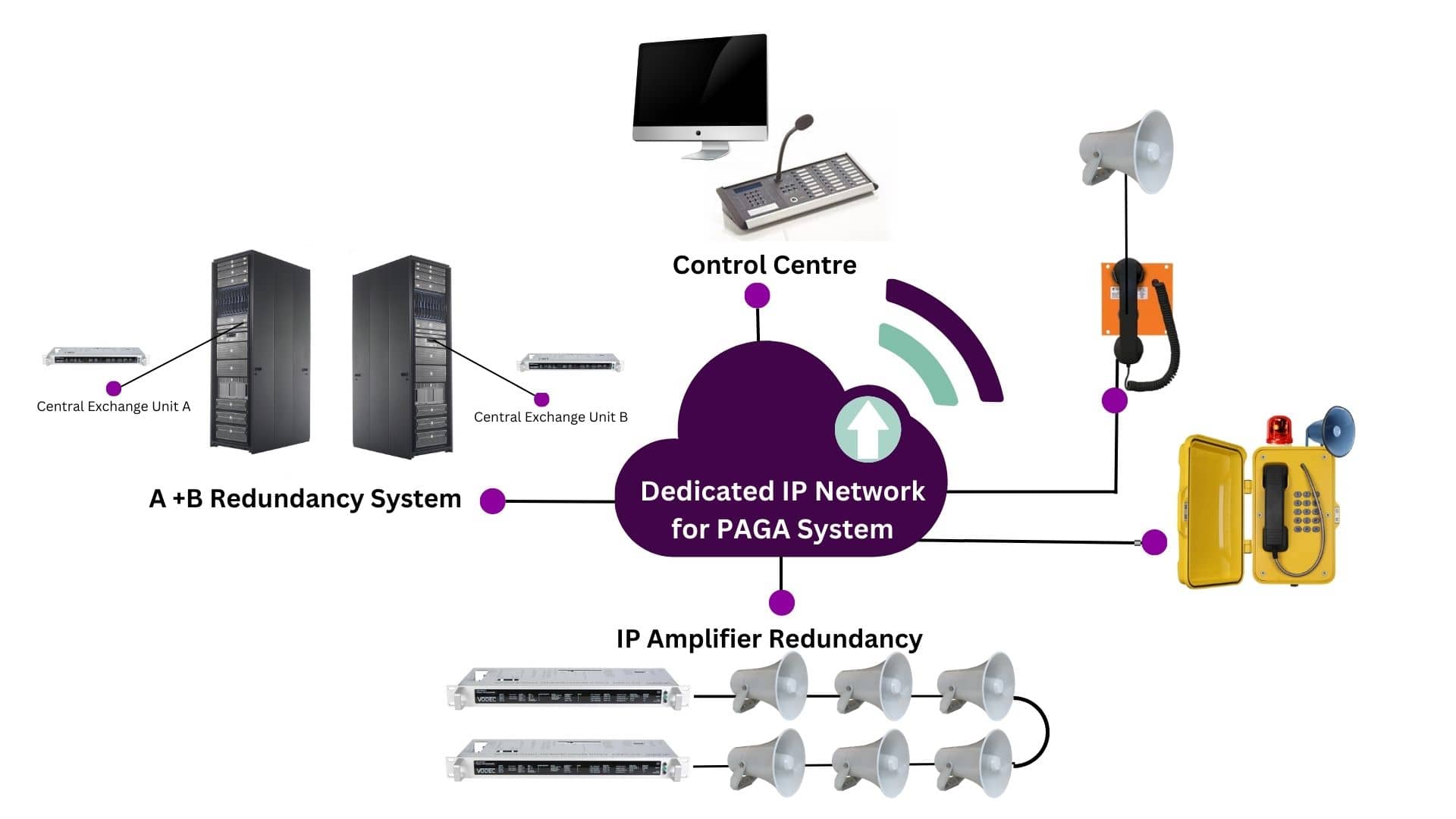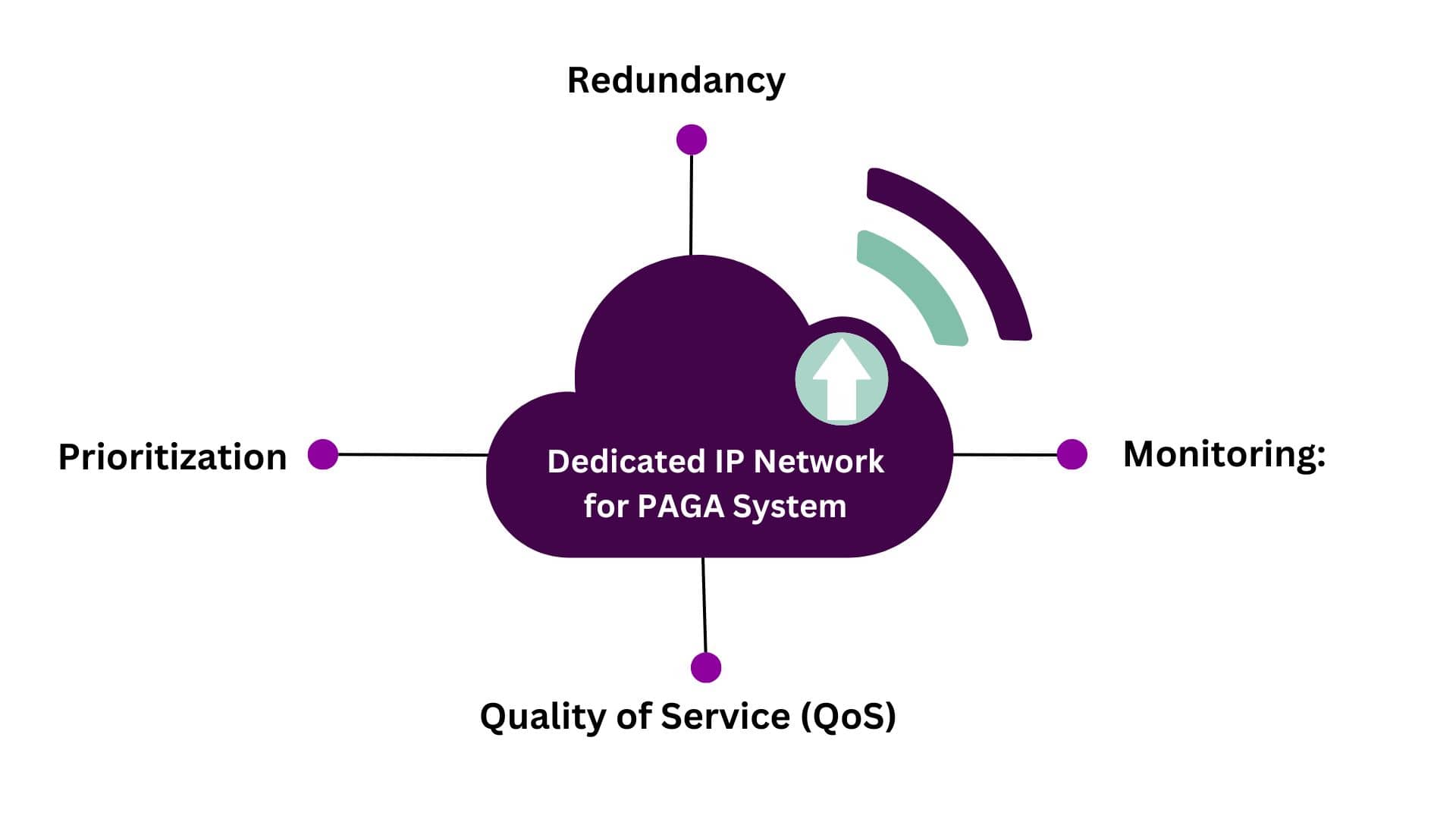Why Upgrade to an IP PAGA System?
PAGA (Public Address and General Alarm) systems are often used in industrial settings, such as factories or plants, to broadcast messages to personnel in case of emergency situations or important announcements. In recent years, there has been a trend towards digitization and integration of industrial systems, including PAGA systems. As a result, many PAGA systems are now being upgraded to IP (Internet Protocol) systems.
IP PAGA Systems
The conversion process typically involves replacing traditional analog PAGA systems with digital IP-based systems. This allows for greater flexibility, scalability, and quite arguably reliability. As we all know TCP/IP is a best effort service. That means there is no guarantee that a data packet will be delivered in congested networks.

However, IP PAGA systems have been designed to guard against these potential issues and ensure reliable communication during critical events. Here are some ways that IP PAGA systems guard against the unreliability of TCP/IP protocol.
Redundancy: IP PAGA systems often incorporate redundancy measures, such as multiple network paths, to ensure that data can be transmitted even if one path is disrupted. This redundancy ensures that critical messages can still be delivered even in the event of network failure.
Prioritization: IP PAGA systems typically prioritize emergency communications over other types of data traffic. This means that even if the network is congested, emergency messages will still be delivered promptly.
Quality of Service (QoS): IP PAGA systems often use QoS mechanisms to ensure that critical voice communications are given priority over other types of data traffic. This helps to ensure that voice communications are delivered with minimal latency or disruption.
Monitoring: IP PAGA systems often incorporate network monitoring tools that can detect and alert administrators to potential network issues. This allows administrators to quickly identify and resolve network issues before they can impact the system's performance.
Overall, IP PAGA systems employ a range of strategies to guard against the potential unreliability of TCP/IP protocol and ensure reliable communication during critical events.

Advantages of IP PAGA Systems
IP-based PAGA systems use Ethernet networks to transmit audio and data signals. This means that multiple remote PAGA zones can be easily managed and controlled from a single central location, making it easier to manage and maintain the system. All that is required is a fibre optic or CAT6/ 6A connection from the central system to the remote zone. This makes IP PAGA systems an idea fit for potential expansions of plants/ facilities.
Additionally, IP-based PAGA systems can be integrated with other industrial systems, such as fire alarm systems or security systems, providing a more comprehensive and streamlined approach to safety and security. Command and Control Centre software can easily integrate IP PAGA systems that are compliant with SNMP and useful information could be shared and displayed. Overall, the conversion from traditional PAGA systems to IP-based systems is a positive step towards increased safety, efficiency, and integration in industrial settings.

Upgrade Your Legacy System
If you have a legacy PAGA system that could be obsolete or coming to its end of life Vivo Asia Engineering & Trading can support a feasibility study of a potential conversion/ upgrading of the system to an IP PAGA system. This could be done keeping all the speaker cabling network and old speakers in place while only replacing the central controller, amplifiers and associated beacon control, access panel interfaces.
Additional interface units like the PABX interface will not be required in an IP PABX system as it can easily integrate with a SIP extension or a SIP trunk from the PABX. The elimination of additional interface units is an added incentive to clients who want to upgrade their legacy systems and could help keep costs within a reasonable limit.

